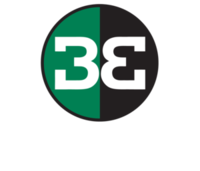Commercial Kitchen Equipment: Install, Maintain & Replace
Commercial Kitchen Equipment: Install, Maintain & Replace
Commercial kitchen equipment is no joke and should be always kept in mind. In 2015 Guy Clarke, an employee of Holy Cow Cafe, was trying to help his colleague move a coffee machine when he was tragically electrocuted and killed. This is just one of the many unfortunate accidents to happen due to electrocution. Between 2013 and 2015, 154 people died in contact with electricity and 87% of these deaths happened while installing electrical equipment.
Furthermore, fires are another risk in commercial kitchens and fire incidents cost millions of dollars for businesses each year.
Commercial kitchen equipment is at higher risk in workplaces.
Higher-risk workplaces are those where the operating conditions are likely to damage the equipment or reduce its lifespan. Such conditions include the commercial kitchen equipment being exposed to moisture, heat, vibration, mechanical damage, corrosive chemicals, and dust. As commercial kitchens contain these conditions it is considered a higher-risk workplace for electrical Issues. Much of the equipment used such as stoves, coffee machines, grills, and fryers contain electrical components that need to be carefully handled.
Commercial kitchen equipment environment: Key steps to reduce electrical risks
- Take urgent action
If you see any electrical sparking or if anyone experiences any instance of even a mild shock you should immediately isolate the electrical supply as it may lead to additional risk. The areas should be evacuated and a competent electrician should be called to monitor the situation. Obtain a certificate from the electrician for any work carried out to make sure the installation is safe.
- Ensure electrical accessories are suitable and protected
Standard domestic sockets are not suitable for areas that are splashed or hosed down. Use industrial sockets and light fittings to prevent water ingress.
- Ensure all socket circuits are protected by a working RCD
A residual current device (RCD) should be used on all circuits supplying portable electrical equipment such as toasters, mixers, meat slicers or kettles to be protected. The RCD should be tested regularly by pressing the test button. If you are trying to find them, they are usually located in the electrical distribution board. To test, switch on the test button if it trips it should indicate that it is working, if it does not trip when pressing the button, please contact a licensed electrician immediately. If you have any doubts, it’s always better to contact an electrician anyway.
- Ensure that metalwork is “bonded”
Any items of fixed metalwork which includes copper pipes, deep fat fryers, and metal counter tops are generally required to be connected electrically together and earthed. This is called bonding. These connections should not be visible. As always if you have any doubts contact an electrician.
- Ensure equipment is regularly inspected and tested
Ensure equipment is regularly inspected and tested by an electrician. It is recommended that electrical installations in places such as restaurants undergo a formal visual examination every 12 months and be fully examined and tested by an electrician every 5 years.
Commercial Kitchen Equipment is at higher risk for fires.
The nature of the commercial kitchen equipment environment makes it highly susceptible to fires which can harm the business, employees, and customers. Yearly, commercial kitchen fires cause millions of dollars of damage to businesses. Although most fires often start in cooking grills and cooking ranges, many of these are usually minor flare-ups at first. What escalates them into catastrophes is the exhaust canopies and ductwork mixing with the airflow, which inflames the minor flare-ups into major fires. Cooking appliances flare up after they generate temperatures above 1000 degrees Celsius, igniting the grease residue that usually builds up in the ventilation system over time. In 2014, five fires in commercial kitchens resulted in $30 million worth of damage.
Common safety faults in commercial kitchen exhaust ventilation systems include:
- A grease removal device too close to the heat source
- Poor maintenance/poor access
- Split maintenance responsibilities
- Ducts too close to inappropriate materials
- Multiple ducts from multiple compartments
- Wood-fire ovens and charcoal heaters
- Incorrect installation.
Keeping ventilation and exhaust systems clean and minimising grease residue will help reduce the potential for fires to take over. Each commercial kitchen exhaust system needs to be thoroughly cleaned at least once a year.
How to protect yourself from fires and electrical hazards
- Consider reputable solutions and well-known brands such as Rational, Convotherm, Goldstein Eswood, Robot Coupe
- Protect staff and customers by raising awareness
- Find a supplier with a proven track record
Call in the experts
At Bathurst Electrical, we are committed to providing the best, professional, and punctual service to all our customers, in a positive, reliable, and efficient manner, every time. Our experienced technicians are available 24/7 to assist with emergency breakdowns or provide you with a preventative maintenance program to ensure your commercial kitchn equipment is running at its best for longer, ultimately saving you money and stress.
We have extensive experience in providing:
- Comprehensive services on commercial kitchen equipment
- 24/7 on-call emergency breakdown service
- Kitchen installations including equipment replacement
- Ongoing preventative maintenance
- Commissioning of new appliances
Whether you are located in Bathurst, Orange, Lithgow, or anywhere in between, Bathurst Electrical can help!
Let's Get Started
Keep up to date on the latest featured articles, news & tips on everything electrical for your home or business! We promise we won't spam.
Contact Info
4/94A Bentinck St, Bathurst NSW 2795,
Australia
02 6334 4888
info@bathurstelectrical.com.au
